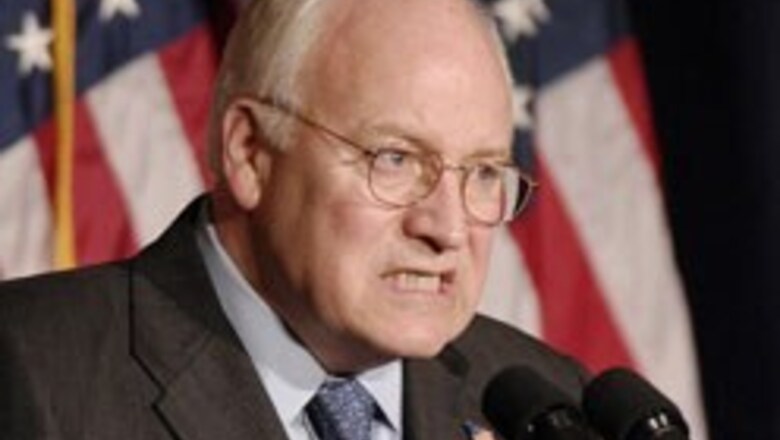
views
Washington: Top US officials strongly defended Pakistan's hunt for terrorists along its border with Afghanistan, with Vice-President Dick Cheney bristling at claims that Pakistan had failed to cooperate in the search for Osama bin Laden.
Afghanistan's ambassador to the United States, meanwhile, said on Sunday that Afghan officials were certain the al-Qaeda leader was hiding in Pakistan.
He suggested that Islamabad had constraints on its ability to fight terrorism.
Cheney, appearing on NBC television's Meet the Press before Monday's fifth anniversary of the September 11, terror attacks on the United States said, ''The fact is we have captured and killed more al-Qaeda in Pakistan than any place else in the world in the last five years.''
Cheney praised Pakistani President General Pervez Musharraf as ''a man who has demonstrated great courage under very difficult political circumstances and has been a great ally for the United States.''
Some observers have expressed concern that a recent peace deal between Islamabad and pro-Taliban militants could provide a haven for al-Qaeda leaders like bin Laden, who is believed to be hiding in the rugged region along the border with Afghanistan.
Pakistan has repeatedly said bin Laden is more likely in Afghanistan, where thousands of US and allied troops are trying to track down Taliban fighters and fugitives from his al-Qaeda network, blamed for the 2001 attacks.
The Afghan ambassador to the United States, Said Jawad, said, ''By having more than 30,000 international forces in Afghanistan and increasingly building the capability of Afghan intelligence forces, we are certain that he is spending most of his time in Pakistan.''
He added, ''There is enough military power, intelligence gathering in the region, but from the very beginning, from the days of Tora Bora, Pakistan has not allowed hot pursuit of terrorists into their territory.''
Western, Afghan and Pakistani officials agree that the nearest they got to Osama bin Laden was in the Tora Bora mountains of Afghanistan near the Pakistani border in November 2001 when he was fleeing the US-backed war that toppled the Taliban regime.
Afghanistan, Jawad told CNN's Late Edition, has no constraint whatsoever, political, military or intelligence-wise, to go after him, to find him and to bring him to justice.
Secretary of State Condoleezza Rice also defended Pakistan's search for bin Laden.
''The Pakistanis operate now in areas of the border between Pakistan and Afghanistan that they did not before. And so his world has gotten smaller,'' Rice said on CNN. ''I don't know precisely where he is, but I do know that we'll continue on the hunt for him.''
In response to calls for the United States to withdraw from Iraq, Cheney invoked Musharraf, who ''puts his neck on the line every day he goes to work.''
Leaving Iraq too soon, Cheney said, would lead Musharraf and others ''to say, 'My gosh, the United States hasn't got the stomach for the fight. Osama bin Laden's right; al-Qaeda's right. The United States has lost its will and will not complete the mission.'''
That, Cheney said, ''will damage our capabilities in all those other war fronts, if you will, in the global war on terror.''


















Comments
0 comment